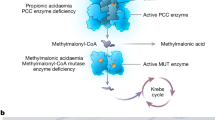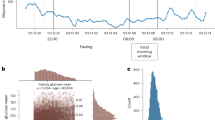Abstract
Treatment of hypertension with thiazide diuretics may trigger hypokalemia, hyperglycemia, and hyperuricemia. Some studies suggest simultaneous potassium supplementation in hypertensive patients using thiazide diuretics. However, few clinical studies have reported the impact of long-term potassium supplementation on thiazide diuretic-induced abnormalities in blood glucose and uric acid (UA) metabolisms. One hundred hypertensive patients meeting the inclusion criteria were equally randomized to two groups: IND group receiving indapamide (1.25–2.5 mg daily) alone, and IND/KCI group receiving IND (1.25–2.5 mg daily) plus potassium chloride (40 mmol daily), both for 24 weeks. At the end of 24-week follow-up, serum K+ level in IND group decreased from 4.27 ± 0.28 to 3.98 ± 0.46 mmol/L (P < 0.001), and fasting plasma glucose (FPG) and UA increased from 5.11 ± 0.52 to 5.31 ± 0.57 mmol/L (P < 0.05), and from 0.404 ± 0.078 to 0.433 ± 0.072 mmol/L (P < 0.05), respectively. Serum K+ level in IND/KCl group decreased from 4.27 ± 0.36 to 3.89 ± 0.28 mmol/L (P < 0.001), and FPB and UA increased from 5.10 ± 0.41 to 5.35 ± 0.55 mmol/L (P < 0.01), and from 0.391 ± 0.073 to 0.457 ± 0.128 mmol/L (P < 0.001), respectively. The difference value between the serum K+ level and FPG before and after treatment was not statistically significant between the two groups. However, the difference value in UA in IND/KCl group was significantly higher than that in IND group (0.066 (95% confidence interval (CI): 0.041–0.090) mmol/L vs. 0.029 (95% CI: 0.006–0.058) mmol/L, P < 0.05). The results showed that long-term routine potassium supplementation could not prevent or attenuate thiazide diuretic-induced abnormalities of glucose metabolism in hypertensive patients; rather, it may aggravate the UA metabolic abnormality.
This is a preview of subscription content, access via your institution
Access options
Subscribe to this journal
Receive 12 digital issues and online access to articles
$119.00 per year
only $9.92 per issue
Buy this article
- Purchase on Springer Link
- Instant access to full article PDF
Prices may be subject to local taxes which are calculated during checkout


Similar content being viewed by others
References
Kearney PM, Whelton M, Reynolds K, Muntner P, Whelton PK, He J. Global burden of hypertension: analysis of worldwide data. Lancet. 2005;365:217–23.
James PA, Oparil S, Carter BL, Cushman WC, Dennison-Himmelfarb C, Handler J, et al. 2014 evidence-based guideline for the management of high blood pressure in adults: report from the panel members appointed to the Eighth Joint National Committee (JNC 8). JAMA. 2014;311:507–20.
Agarwal R. Hypertension, hypokalemia, and thiazide-induced diabetes: a 3-way connection. Hypertension. 2008;52:1012–3.
Kostis JB, Wilson AC, Freudenberger RS, Cosgrove NM, Pressel SL, Davis BR, et al. Long-term effect of diuretic-based therapy on fatal outcomes in subjects with isolated systolic hypertension with and without diabetes. Am J Cardiol. 2005;95:29–35.
McAdams DeMarco MA, Maynard JW, Baer AN, Gelber AC, Young JH, Alonso A, et al. Diuretic use, increased serum urate levels, and risk of incident gout in a population-based study of adults with hypertension: the Atherosclerosis Risk in Communities Cohort Study. Arthritis Rheum. 2012;64:121–9.
Jian-Liang Z, Yong-Wen Q, Xing Z, Jian-Li Q, Jiang C, Rong-Liang X. Possible induction of diabetes by treatment of hypertension with indapamide (with four case reports). Diabetes Res Clin Pract. 2004;65:243–146.
Zhang JL, Qin YW, Zheng X, Qiu JL, Zhao XX, Zou DJ. Combination therapy with angiotensin-converting enzyme inhibitors and indapamide impairs glucose tolerance in Chinese hypertensive patients. Blood Press. 2010;19:110–8.
Rapoport MI, Hurd HF. Thiazide-induced glucose intolerance treated with potassium. Arch Intern Med. 1964;113:405–8.
Helderman JH, Elahi D, Andersen DK, Raizes GS, Tobin JD, Shocken D, et al. Prevention of the glucose intolerance of thiazide diuretics by maintenance of body potassium. Diabetes. 1983;32:106–11.
Shafi T, Appel LJ, Miller ER 3rd, Klag MJ, Parekh RS. Changes in serum potassium mediate thiazide-induced diabetes. Hypertension. 2008;52:1022–9.
Fathallah N, Slim R, Larif S, Hmouda H, Ben Salem C. Drug-induced hyperglycaemia and diabetes. Drug Saf. 2015;38:1153–68.
Zillich AJ, Garg J, Basu S, Bakris GL, Carter BL. Thiazide diuretics, potassium, and the development of diabetes: a quantitative review. Hypertension. 2006;48:219–24.
Roush GC, Ernst ME, Kostis JB, Tandon S, Sica DA. Head-to-head comparisons of hydrochlorothiazide with indapamide and chlorthalidone: antihypertensive and metabolic effects. Hypertension. 2015;65:1041–6.
Decaux G, Soupart A. Treatment of symptomatic hyponatremia. Am J Med Sci. 2003;326:25–30.
Kaplan NM, Carnegie A, Raskin P, Heller JA, Simmons M. Potassium supplementation in hypertensive patients with diuretic-induced hypokalemia. N Engl J Med. 1985;312:746–9.
Ruml LA, Pak CY. Effect of potassium magnesium citrate on thiazide-induced hypokalemia and magnesium loss. Am J Kidney Dis. 1999;34:107–13.
Maronde RF, Chan LS, Vlachakis N. Hypokalemia in thiazide-treated systemic hypertension. Am J Cardiol. 1986;58:18A–21A.
Holeggens A, Alderman MH, Kjeldsen S, Julius S, Devereua RB, De Faire U, et al. The impact of serum uric acid on cardiovascular outcomes in the LIFE study. Kidney Int. 2004;65:1041–9.
Siegel D, Hulley SB, Black DM, Cheitlin MD, Sebastian A, Seeley DG, et al. Diuretics, serum and intracellular electrolyte levels,and ventricular arrhythmias in hypertensive men. JAMA. 1992;267:1083–9.
Khuri RN, Strieder WN, Giebisch G. Effects of flow rate and potassium intake on distal tubular potassium transfer. Am J Physiol. 1975;228:1249–61.
Velazquez H, Wright FS. Control by drugs of renal potassium handling. Annu Rev Pharmacol Toxicol. 1986;26:293–309.
Graham UM, McCance DR, Young IS, Mullan KR. A randomised controlled trial evaluating the effect of potassium supplementation on vascular function and the renin–angiotensin–aldosterone system. J Hum Hypertens. 2014;28:333–9.
Huang CL, Kuo E. Mechanism of hypokalemia in magnesium deficiency. J Am Soc Nephrol. 2007;18:2649–52.
ALLHAT Officers and Coordinators for the ALLHAT Collaborative Research Group. The Antihypertensive and Lipid-Lowering Treatment to Prevent Heart Attack Trial. Major outcomes in high-risk hypertensive patients randomized to angiotensinconverting enzyme inhibitor or calcium channel blocker vs diuretic: the Antihypertensive and Lipid-Lowering Treatment to Prevent Heart Attack Trial (ALLHAT). JAMA. 2002;288:2981–97.
Hirst JA, Farmer AJ, Feakins BG, Aronson JK, Stevens RJ. Quantifying the effects of diuretics and beta-blockers on glycaemic control in diabetes mellitus—a systematic review and meta-analysis. Br J Clin Pharmacol. 2015;79:733–43.
Gibson TJ. Hypertension, its treatment, hyperuricaemia and gout. Curr Opin Rheumatol. 2013;25:217–22.
Morledge JH. Clinical efficacy and safety of indapamide in essential hypertension. Am Heart J. 1983;106(Part 2):229–32.
Saruta T, Ogihara T, Saito I, Rakugi H, Shimamoto K, Matsuoka H, et al. Comparison of olmesartan combined with a calcium channel blocker or a diuretic in elderly hypertensive patients (COLM Study): safety and tolerability. Hypertens Res. 2015;38:132–6.
Ito S, Naritomi H, Ogihara T, Shimada K, Shimamoto K, Tanaka H, et al. Impact of serum uric acid on renal function and cardiovascular events in hypertensive patients treated with losartan. Hypertens Res. 2012;35:867–73.
Bakris G, Molitch M, Hewkin A, Kipnes M, Sarafidis P, Fakouhi K, et al. Differences in glucose tolerance between fixed-dose antihypertensive drug combinations in people with metabolic syndrome. Diabetes Care. 2006;29:2592–7.
Brown MJ, Williams B, Morant SV, Webb DJ, Caulfield MJ, Cruickshank JK, et al. Effect of amiloride, or amiloride plus hydrochlorothiazide, versus hydrochlorothiazide on glucose tolerance and blood pressure (PATHWAY-3): a parallel-group, double-blind randomised phase 4 trial. Lancet Diabetes Endocrinol. 2016;4:136–47.
Acknowledgements
We thank Lou-man Zhang and Tian-tian Zhu for statistical analysis support.
Funding
This study was supported by Changhai Hospital Development Fund (2014012).
Author information
Authors and Affiliations
Corresponding authors
Ethics declarations
Conflict of interest
The authors declare that they have no conflict of interest.
Electronic supplementary material
41371_2018_36_MOESM1_ESM.doc
The difference value between the outcome at 12 and 24 weeks after treatment and the baseline [means (95% confidence interval)]
Rights and permissions
About this article
Cite this article
Zhang, Jl., Yu, H., Hou, Yw. et al. Impact of long-term potassium supplementation on thiazide diuretic-induced abnormalities of glucose and uric acid metabolisms. J Hum Hypertens 32, 301–310 (2018). https://doi.org/10.1038/s41371-018-0036-3
Received:
Revised:
Accepted:
Published:
Issue Date:
DOI: https://doi.org/10.1038/s41371-018-0036-3



